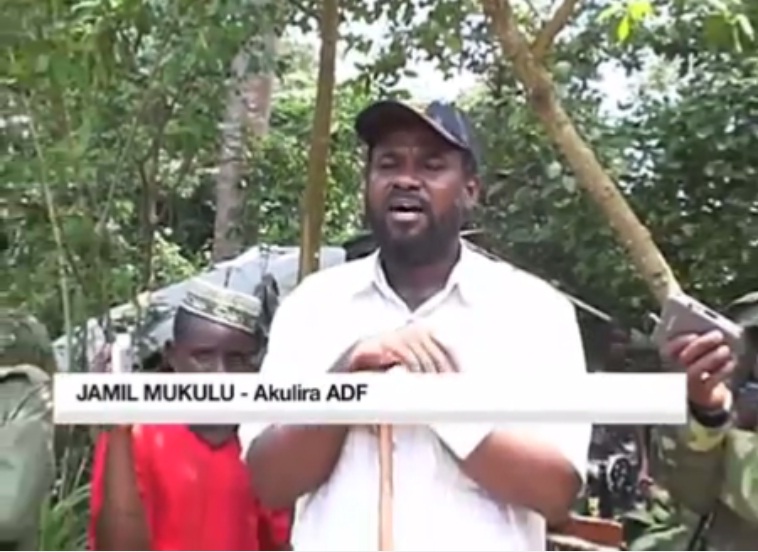By TZ Business News Staff.
A court approval to extradite the Al Qaeda trained terror suspect Jamil Mukulu from Tanzania to Uganda is expected to be made on Friday, May 22, 2015, in Dar es Salaam, the Tanzania Director of Criminal Investigations (DCI), Commissioner of Police (CP) Diwani Athumani Msuya has told TZ Business News.
Ugandan authorities filed papers in the Tanzania High Court earlier this May, 2015 to request approval for the extradition of the high profile terror suspect to Uganda amid Tanzania’s indecision because the Democratic Republic of Congo (DRC) was also wanting Mukulu extradited to the DRC.
The extradition process in favour of Uganda has already started, CP Msuya told this website. Responding to the question, is it true Tanzania has agreed to extradite the terror suspect Jamil Mukulu to Uganda? The DCI replied: “yes, we are waiting for completion of the process in court on Friday [May 22, 2015]”.
Mukulu is wanted in both Uganda and Congo DRC on several counts of terrorism, murder, child and women trafficking; and forceful recruitment of both women and children into rebel ranks. Uganda and Tanzania do not have an extradition treaty.
Interpol in Uganda has confirmed the Islamic extremist leader recently arrested in Tanzania is set to be extradited to Uganda after Tanzanian authorities agreed to cooperate.
Asan Kasingye, head of Interpol in Uganda told the Associated Press Tuesday, May 19, 2015 the terror suspect appeared in a Tanzanian court on Friday, May 15, 2015, charged with multiple counts of murder, after his extradition papers were filed.
Jamil Mukulu, leader of the Ugandan armed group Allied Democratic Forces (ADF), doesn’t want to go back to Uganda because he thinks they will just kill him, Kasingye, who was granted permission to question Mukulu in Dar es Salaam told the news agency AP.
The Uganda Interpol chief said the rebel leader was “picked up” from his home in Dar es Salaam earlier this year, [apparently hiding in plain sight like his leader Osama bin Laden who hid in plain sight in Abbottabad, Pakistan, until the US Navy Seals got him]. Tanzania security forces reportedly acted on a tip-off.
“He doesn’t want to go back to Uganda because he thinks they will just kill him,” said Kasingye, who questioned Mukulu in Dar es Salaam. The Kinshasa government is also urging Mukulu’s extradition to Congo, saying he committed more crimes there.
The ADF originated in Uganda in the 1990s but now operates in the jungles of eastern Congo. The group is accused of carrying out massacres in Uganda as well as in parts of eastern Congo, including killings recently near the town of Beni in Congo’s North Kivu province. In that attack in mid-May, rebels using machetes and axes killed 23 people in an overnight assault on several small villages.
Mukulu is blacklisted by the U.S. and was the subject of an Interpol arrest warrant for attacks carried out against civilians.
A convert to Islam, Mukulu is accused of ordering a range of crimes, including a 1998 massacre in which scores of students were burned to death in their dormitories in a town near the Congo border.
The ADF, which originally said it opposed what it called the marginalization of Ugandan Muslims, is accused of launching a series of deadly bomb blasts in the Ugandan capital of Kampala in the late 1990s before a military operation forced the rebels to set up camp in an eastern Congo forest.
A U.N. report in 2012 said ADF rebels had “expanded their military capacity and cooperated” with Somalia’s al-Shabab extremists.
The ADF rebels had largely been quiet, though they would stage sporadic attacks on towns in eastern Congo and against Congolese military units.
This year, Uganda authorities linked ADF to several murders in the country. A number of Islamic religious schools were also closed down on allegations they recruited children to join the ADF.




